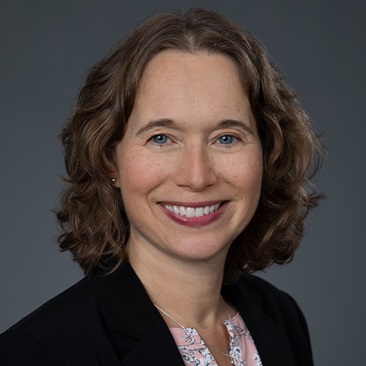Colleen Heflin examines the intersection of food security, welfare policy, and health
October 6, 2017
Households that receive greater benefits from the Supplemental Nutrition Assistance Program (SNAP) have fewer visits to the emergency room for hypoglycemia, a health condition that is sensitive to food consumption.
"That's actually counterintuitive," says Colleen Heflin, an expert on poverty policy and food security. "Typically people who qualify for higher SNAP benefits are in the worst health, so this suggests there is something really protective about the SNAP benefits."
Heflin, who joined Maxwell this fall as a professor of public administration and international affairs, and as a senior research associate in Maxwell's Center for Policy Research, has served as principal investigator on several federally funded studies of SNAP benefits and food security.
She's now investigating how the timing of benefits impacts health. "SNAP is a national program, but individual states control when they distribute benefits. There's little evidence showing what's most effective," says Heflin. In Missouri, for example, where SNAP is available over a 22-day period each month, households may experience periods flush with benefits and other times that are lean. "I'm trying to figure out if people are not eating during those tight periods and whether that's impacting their health," she says.
Heflin was recently awarded a grant from the University of Kentucky/U.S. Department of Agriculture for her project, "Understanding SNAP and Food Security Among Low-Income Households." This project will assess the relationship between SNAP participation and the probability of premature mortality using nationally-representative data from the 1997-2011 National Health Interview Survey linked to National Death Index (NDI) data on all deaths occurring from 1997 to 2011.
Heflin is former co-director of the Population Education and Health Center at the University of Missouri. She's now part of a strong cohort of new faculty members joining Maxwell's PA program, most with a deep interdisciplinary orientation. Heflin's scholarship crosses boundaries of public administration, public health, sociology, and economics.
"Colleen's work examining the connections between health, poverty, and families — and how policy affects them — reflects the kind of interdisciplinary approach to tackling tough problems we consider our hallmark," says David Van Slyke, dean of the School.
Heflin also builds on a Maxwell strength in social policy and, specifically, in the area of health and wellness. Her study of social stratification, welfare policy, and vulnerable populations complements work done by department professors Douglas Wolf (aging studies), Sarah Hamersma (health and nutrition systems), Tom Dennison (healthcare administration), Amy Ellen Schwartz (school nutrition), and Len Lopoo (population studies). She also joins other members of Maxwell's interdisciplinary health and wellness team, such as sociologists Jennifer Karas Montez and Shannon Monnat, the latter Maxwell's new Lerner Chair for Public Health Promotion.
"The Maxwell School is the strongest place in the country to do the work that I do," says Heflin. "I've always been an interdisciplinary scholar and Maxwell is set up to encourage that type of collaboration. It's the way to really push forward on the frontiers of important policy issues facing our country and world.
09/28/17

